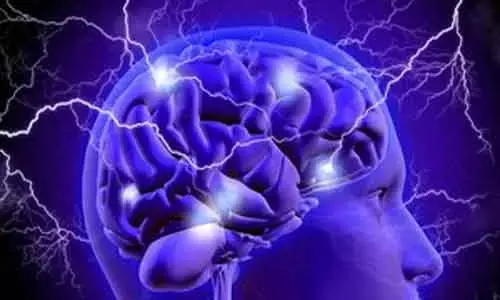- Home
- Medical news & Guidelines
- Anesthesiology
- Cardiology and CTVS
- Critical Care
- Dentistry
- Dermatology
- Diabetes and Endocrinology
- ENT
- Gastroenterology
- Medicine
- Nephrology
- Neurology
- Obstretics-Gynaecology
- Oncology
- Ophthalmology
- Orthopaedics
- Pediatrics-Neonatology
- Psychiatry
- Pulmonology
- Radiology
- Surgery
- Urology
- Laboratory Medicine
- Diet
- Nursing
- Paramedical
- Physiotherapy
- Health news
- Fact Check
- Bone Health Fact Check
- Brain Health Fact Check
- Cancer Related Fact Check
- Child Care Fact Check
- Dental and oral health fact check
- Diabetes and metabolic health fact check
- Diet and Nutrition Fact Check
- Eye and ENT Care Fact Check
- Fitness fact check
- Gut health fact check
- Heart health fact check
- Kidney health fact check
- Medical education fact check
- Men's health fact check
- Respiratory fact check
- Skin and hair care fact check
- Vaccine and Immunization fact check
- Women's health fact check
- AYUSH
- State News
- Andaman and Nicobar Islands
- Andhra Pradesh
- Arunachal Pradesh
- Assam
- Bihar
- Chandigarh
- Chattisgarh
- Dadra and Nagar Haveli
- Daman and Diu
- Delhi
- Goa
- Gujarat
- Haryana
- Himachal Pradesh
- Jammu & Kashmir
- Jharkhand
- Karnataka
- Kerala
- Ladakh
- Lakshadweep
- Madhya Pradesh
- Maharashtra
- Manipur
- Meghalaya
- Mizoram
- Nagaland
- Odisha
- Puducherry
- Punjab
- Rajasthan
- Sikkim
- Tamil Nadu
- Telangana
- Tripura
- Uttar Pradesh
- Uttrakhand
- West Bengal
- Medical Education
- Industry
US FDA clears marketing of device for rehabilitation of stroke patients

USA: The US Food and Drug Administration has authorized the marketing of a new device that assists in rehabilitation for stroke patients with upper extremity—or hand, wrist, and arm—disability. The Neurolutions IpsiHand Upper Extremity Rehabilitation System (IpsiHand System) is a Brain-Computer-Interface (BCI) device indicated for use in patients 18 and older undergoing stroke rehabilitation to facilitate muscle re-education and for maintaining or increasing range of motion.
The device consists of an electroencephalography (EEG) electrode headset that records the patient's brain signals and identifies when the patient intends to move their affected hand, along with a robotic hand brace that picks up these signals and opens and closes the patient's hand in response.
In a 12-week trial, the IpsiHand helped improve motor function for all 40 participants. The most common side effects were discomfort, minor fatigue, and redness of the skin.
"Thousands of stroke survivors require rehabilitation each year. Today's authorization offers certain chronic stroke patients undergoing stroke rehabilitation an additional treatment option to help them move their hands and arms again and fills an unmet need for patients who may not have access to home-based stroke rehabilitation technologies," Christopher M. Loftus, M.D., acting director of the Office of Neurological and Physical Medicine Devices in the FDA's Center for Devices and Radiological Health, said in a press release.
A stroke occurs when normal blood flow to the brain is interrupted. Brain cells obtain oxygen and nutrients from regular blood circulation, so when there is a blockage of blood flow to the brain caused by a clot (an ischemic stroke) or excessive bleeding in the brain due to a ruptured blood vessel (a hemorrhagic stroke), the brain cells can die from a lack of blood and oxygen. Although stroke is a brain disease, it can affect the entire body and sometimes causes long-term disability such as complete paralysis of one side of the body (hemiplegia) or one-sided weakness (hemiparesis) of the body. Stroke survivors may have problems with the simplest of daily activities, including speaking, walking, dressing, eating and using the bathroom.
Post-stroke rehabilitation helps individuals overcome disabilities that result from stroke damage. The IpsiHand System uses non-invasive electroencephalography (EEG) electrodes instead of using an implanted electrode or other invasive feature to record brain activity. The EEG data is then wirelessly conveyed to a tablet for analysis of the intended muscle movement (intended motor function) and a signal is sent to a wireless electronic hand brace, which in turn moves the patient's hand. The device aims to help stroke patients improve grasping. The device is prescription-only and may be used as part of rehabilitation therapy.
The IpsiHand System device should not be used by patients with severe spasticity or rigid contractures in the wrist and/or fingers that would prevent the electronic hand brace from being properly fit or positioned for use or those with skull defects due to craniotomy or craniectomy.
Dr Kamal Kant Kohli-MBBS, DTCD- a chest specialist with more than 30 years of practice and a flair for writing clinical articles, Dr Kamal Kant Kohli joined Medical Dialogues as a Chief Editor of Medical News. Besides writing articles, as an editor, he proofreads and verifies all the medical content published on Medical Dialogues including those coming from journals, studies,medical conferences,guidelines etc. Email: drkohli@medicaldialogues.in. Contact no. 011-43720751


